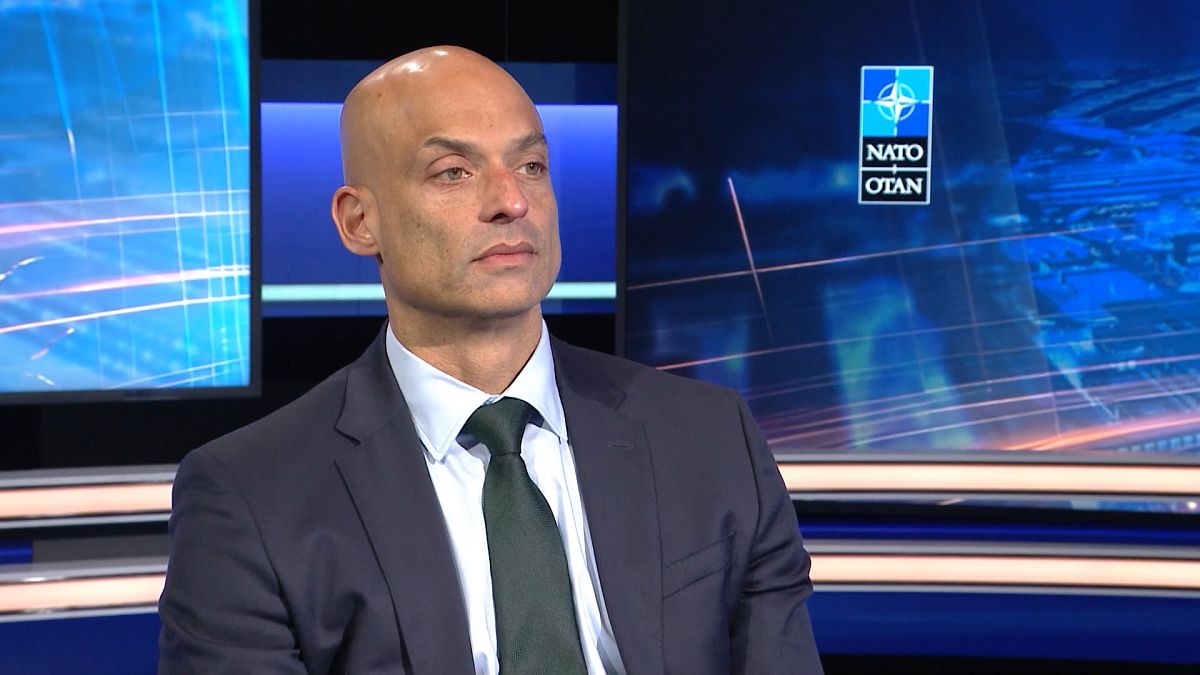Mississippi
Kalman Hettleman: In teaching children to read, Mississippi puts Maryland to shame – Maryland Matters

Mississippi is far ahead of Maryland in initiatives to teach all children to read. We Marylanders should be aghast and ashamed.
How come deep south Mississippi, with the highest child poverty rate in the country, ranks side by side with Maryland in the middle tier of states in fourth grade reading scores? More startling, how come between 2011 and 2022, Mississippi ranks first among states in gains in fourth grade reading while Maryland is tied for last?
Actually, the answers are not a big mystery. One, Maryland has lagged far behind most states for a long time, as I wrote in a 2021 report. And we’re getting worse. According to one national account, 31 states have now passed laws to boost the science of reading and evidence-based instruction. Maryland is not one them.
The second explanation for Mississippi’s prominence is the leadership of Carey Wright. She’s not a household name but if you follow the media on public education, you know about her. Mississippi’s state superintendent from 2013 to 2022, she is nationally acclaimed for “Steering Mississippi’s Unlikely Learning Miracle.” A widely discussed article in the New York Times last month highlighted how she ran the show “brilliantly.”
Marylanders have extra reason to be jealous: She spent almost all her career as a teacher and top administrator in Prince George’s, Howard and Montgomery counties school systems. It’s a fair guess that if she had risen to become our state school superintendent, Maryland might be in the limelight, rather than as far behind as we are. Many, many thousands of our schoolchildren would have avoided reading failure and blighted futures.
I recently interviewed Wright twice (she’s now retired and living in Baltimore County). And what came over most clearly was her conviction that there was nothing miraculous about the Mississippi literacy miracle. It was, she said, “hard work, high expectations, fresh thinking, good communication, and a statewide strategy based on the science of reading and teacher development.” And most of all, though she was quick to credit others, leadership was first and foremost.
That leadership — which set the stage for her superintendency and provided sustained support – included the Republican governor and legislative majority, literacy advocates, and the Barksdale Reading Institute, a nonprofit that partnered with schools and colleges on teacher development.
From there, as one observer notes, Wright “reorganized the entire education department to focus on literacy and more rigorous standards, a big investment in teacher training in the science of reading; and [implementing the requirement for] all third graders to pass a ‘reading gate’ assessment or risk being held back.” Mississippi, like Maryland, has a long history of “local control,” but she pushed the limits, including state hired, locally embedded literacy coaches.
Can it happen here?
Maryland, Wright asserts with contagious enthusiasm, could follow the same model (as other states are doing).
Leadership must come to the fore. Marylanders are still waiting for a governor or other powerful leader to make education their highest priority and stake their political capital on it. (If any further wake-up call is needed, Annapolis should note that literacy initiatives in many states, in addition to Mississippi, have been led by Republicans.)
Maryland leadership must act now to fill in the most gaping and indefensible hole in the Blueprint for Maryland’s Future: the absence of a comprehensive plan to vastly improve literacy, particularly in grades K-3. So far, the Maryland State Department of Education hasn’t set forth such a plan, despite many calls for it to do so. And the Blueprint Accountability and Implementation Board (AIB) is wrestling with its review of MSDE’s inaction.
The comprehensive literacy plan — a “statewide strategy” in Wright’s words — must embrace the Mississippi building blocks: most notably, early instruction and interventions and teacher development that follow the science of reading. (I have reservations about the third-grade reading gate but not the space here to explain. I’ll do so in a future article.)
Maryland’s 2019 Ready to Read Act and regulations fall far short of the Mississippi model. While early screening and “evidence-based instruction for students at risk of reading difficulties” in K-3 are required, MSDE has halted efforts to achieve effective implementation. Further, many features of literacy laws in leading states are missing, and states with comprehensive policies are showing the best signs of success. Eric Luedtke, the chief legislative officer for Gov. Wes Moore (D) and former House delegate and leading supporter of the Act, has publicly stated that the Act needs strengthening.
That said, Maryland leaders can take a much quicker road than legislation to catch up to Mississippi and other states; The AIB and MSDE have authority now to put in place many plan elements. (The main exception is more funding but, even there, more can be done to assure that available funds, including COVID-19 relief, are better spent.)
Stakeholders in Maryland must push AIB and MSDE to take urgent action. And, lucky for us, Wright is engaged in the effort. She will be playing a lead role in a new non-profit organization Maryland Reads that intends to design and advocate for literacy reform.
Early literacy is so indispensable to the Blueprint that the AIB and MSDE should meet jointly to hear her as soon as possible. All our schoolchildren can learn to read if — though she wouldn’t use these words — we do it the Wright way.

Mississippi
Earthquake strikes Jackson, MS area on Thanksgiving Day. See the details

VIDEO: Students practice earthquake drill for Great Oregon ShakeOut
Spencer Butte Middle School students participate in the Great Oregon ShakeOut, learning about earthquakes and what to do if one occurs.
A 2.5 magnitude earthquake struck near the Ross Barnett Reservoir on Thanksgiving Day, the United States Geological Survey confirmed.
The minor-earthquake struck around 12 kilometers southeast of Canton at a depth of 5 kilometers. It happened around 7:48 a.m. No damage was reported.
The quake was recorded on the north side of the of the reservoir near where Highway 43 crosses the lake and south of the Natchez Trace Parkway.
Earthquakes have occurred in the region before.
“Until 2014, when the dramatic increase in earthquake rates gave Oklahoma the number one ranking in the conterminous U.S., the most seismically active area east of the Rocky Mountains was in the Mississippi Valley area known as the New Madrid seismic zone,” according to the USGS website.
In the winter of 1811 and 1812, according to the USGS, the New Madrid seismic zone “generated a sequence of earthquakes that lasted for several months and included three very large earthquakes estimated to be between magnitude 7 and 8. The three largest 1811-1812 earthquakes destroyed several settlements along the Mississippi River, caused minor structural damage as far away as Cincinnati, Ohio, and St. Louis, Missouri, and were felt as far away as Hartford, Connecticut, Charleston, South Carolina, and New Orleans, Louisiana.”
A 2.6 magnitude earthquake also struck in Oklahoma on Thanksgiving Day.
Mississippi
Minor earthquake recorded in Mississippi on Thanksgiving

MADISON COUNTY, Miss. (WJTV) – A minor earthquake was recorded in Mississippi early Thanksgiving morning.
According to the United States Geological Survey (USGS), the 2.5-magnitude earthquake occurred southeast of Canton near the Ross Barnett Reservoir around 1:48 a.m. on Thursday, November 28.
Officials with the Michigan Technological University said earthquakes below 2.5-magnitude are “generally not felt.” So far, there are no reports of any damage in Madison County.
The last earthquake that occurred in Madison County was a 2.8-magnitude earthquake in 2019.
Mississippi
Thanksgiving on Mississippi Public Broadcasting Think Radio, set to air on Thursday, November 28th

MISSISSIPPI (KTVE/KARD) — For Thanksgiving, on Thursday, November 28, 2024, the Mississippi Public Broadcasting Radio will air a special programming.
Photo courtesy of Mississippi Public Broadcasting
According to officials, “Turkey Confidential” and “Feasting with the Great American Songbook: An Afterglow Thanksgiving Special” will run from 9 a.m. to 1 p.m. Francis Lam will be taking calls and help those in need of Thanksgiving cooking tips for the biggest cooking day of the year.
According to officals, “Feasting with the Great American Songbook: An Afterglow Thanksgiving Special” will explore classic jazz and popular songs about food by singers like Louis Armstrong, Louis Jordan, and Fats Waller, perfect for listening while sitting at the table.
-

 Science1 week ago
Science1 week agoTrump nominates Dr. Oz to head Medicare and Medicaid and help take on 'illness industrial complex'
-

 Health6 days ago
Health6 days agoHoliday gatherings can lead to stress eating: Try these 5 tips to control it
-

 Health3 days ago
Health3 days agoCheekyMD Offers Needle-Free GLP-1s | Woman's World
-

 Science3 days ago
Science3 days agoDespite warnings from bird flu experts, it's business as usual in California dairy country
-

 Technology2 days ago
Technology2 days agoLost access? Here’s how to reclaim your Facebook account
-

 Science1 week ago
Science1 week agoAlameda County child believed to be latest case of bird flu; source unknown
-

 Sports1 week ago
Sports1 week agoBehind Comcast's big TV deal: a bleak picture for once mighty cable industry
-

 Entertainment24 hours ago
Entertainment24 hours agoReview: A tense household becomes a metaphor for Iran's divisions in 'The Seed of the Sacred Fig'















